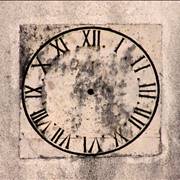
In the traditional view, summarized by Boorstin, the impetus "came not from farmers or shepherds nor from merchants or craftsmen, but from religious persons anxious to perform promptly and regularly their duties to God" as determined by the system of canonical hours. Why medieval Europe, which had lagged behind the East technically for centuries, suddenly became interested in a more accurate, dependable timekeeping system is hotly debated among scholars. By the mid-13th century, Western designers were determined to create a completely mechanical clock. in Egypt.Ĭhina and the Islamic countries produced the most sophisticated designs and were doing so as early as the seventh and eighth centuries A.D., hundreds of years before European technology could match their complexity.īut there were limits to even the best-engineered water clocks: They froze in the European winter. Such a device was used at least as early as the 15th century B.C. All relied on one basic principle: Water can be made to drip at a fairly constant rate from a bowl with a tiny hole in the bottom. The only device that could approach the precision of a mechanical system was the water clock, which emerged independently in various forms around the world. Hourglasses, which date from the eighth century A.D., had to be turned upside down at the instant they emptied. Candle clocks were never accurate enough for general purposes.

Sundials, which had been used in China as early as 2,600 B.C., wouldn't work on cloudy days or at night. No previous method of marking the passage of time could make that claim. Here was man's declaration of independence from the sun, new proof of his mastery over himself and his surroundings." "There are few greater revolutions in human experience," Boorstin writes, "than this movement from the seasonal or 'temporary' hour to the equal hour. Landes puts it in his book "Revolution in Time," and in making possible "for better or worse, a civilization attentive to the passage of time, hence to productivity and performance." Monasteries needed more accurate systems for marking the "canonical hours" (the seven periods per day of mandatory religious observance) and the growing merchant classes in cities needed new ways of managing manufacturing and trade.Īs the new system swept Europe, machine-made "equinoctial hours" at last succeeded in "separating human events from nature," as David S. And by an accident of history, it arrived precisely at a time - the end of the 13th century - when both religious and secular institutions were demanding new standards of regularity and punctuality. The mechanical clock, however, was superbly suited for dividing each day into 24 equal units. In England, Jean Gimpel notes in "The Medieval Machine," "London hours" varied in length by as much as 44 minutes during a year. The disparity naturally increased with latitude. At the summer solstice, the situation was the opposite. Thus at Rome during the empire, Daniel Boorstin explains in "The Discoverers," winter solstice daylight hours were 44 minutes long and dark hours lasted 75 minutes.


Of course, this arrangement meant that the length of the hour fluctuated with the seasons each of these so-called temporal hours was longer in summer, when there was more daylight, and shorter in winter. Even when societies devised various systems of slicing time into smaller units, those units were almost invariably defined as some specific fraction of daylight or of darkness.įor example, the ancient Egyptians divided the day into 24 hours: 12 equal segments of daylight and 12 of night. More important, it forced the Western world into a new, uniform time-keeping standard that endures to this day.įor thousands of years, the daily rhythms of individual life and human communities had been governed by the cycle of sunrise and sunset. Within only a few decades, it pushed all its predecessors - water clocks, hourglasses, candle clocks and sundials - into obsolescence.

It was one of the most important developments in the history of civilization and the paramount accomplishment of medieval technology. They just had a different attitude toward the passage of that mysterious thing called time.īut in that extraordinary century, medieval craftsmen invented the mechanical clock, which tolled equal hours. It wasn't because they had lousy clocks in the Middle Ages. Until the early 1300s, the length of an hour in London could vary from 38 minutes to 82 minutes.


 0 kommentar(er)
0 kommentar(er)
